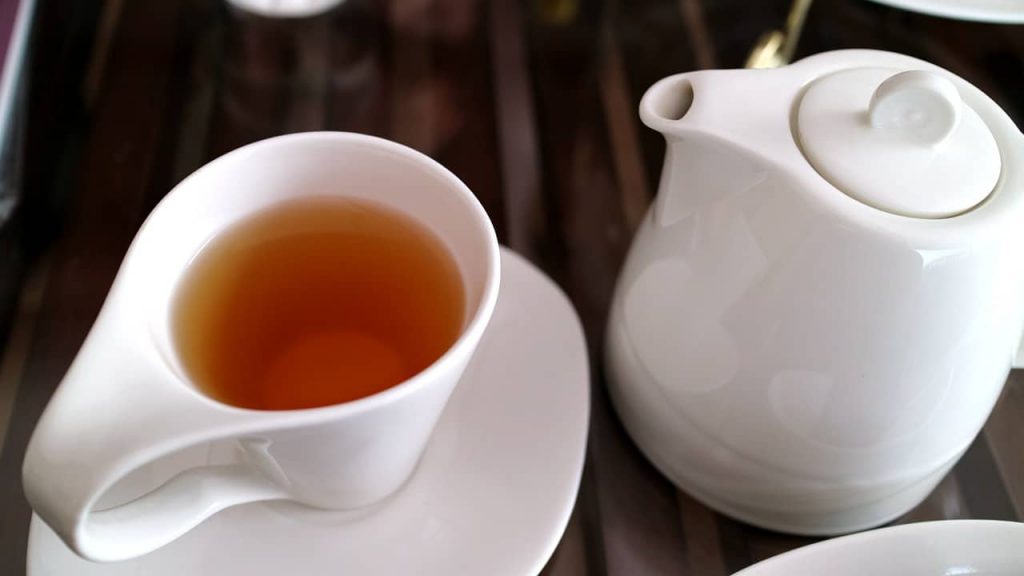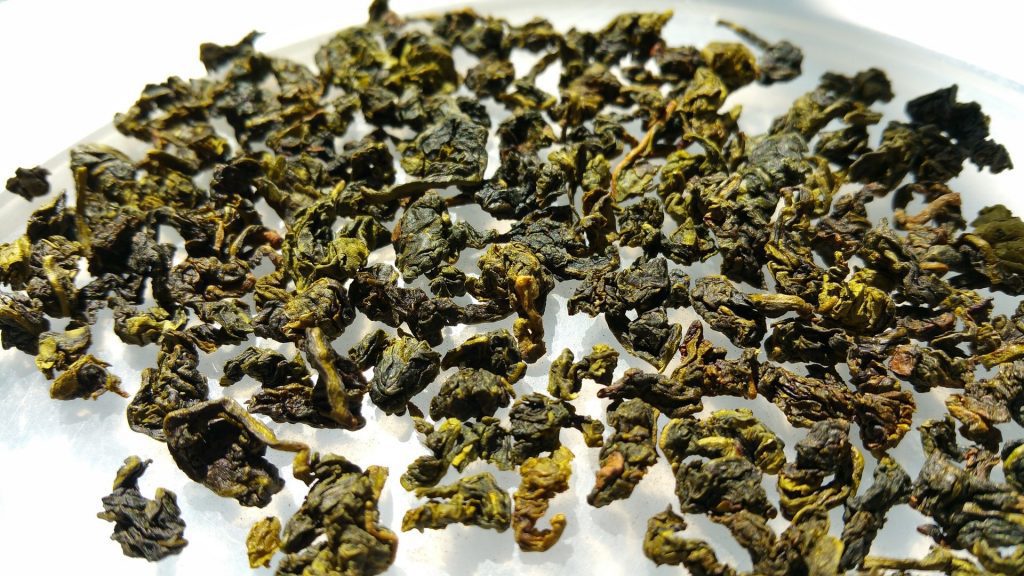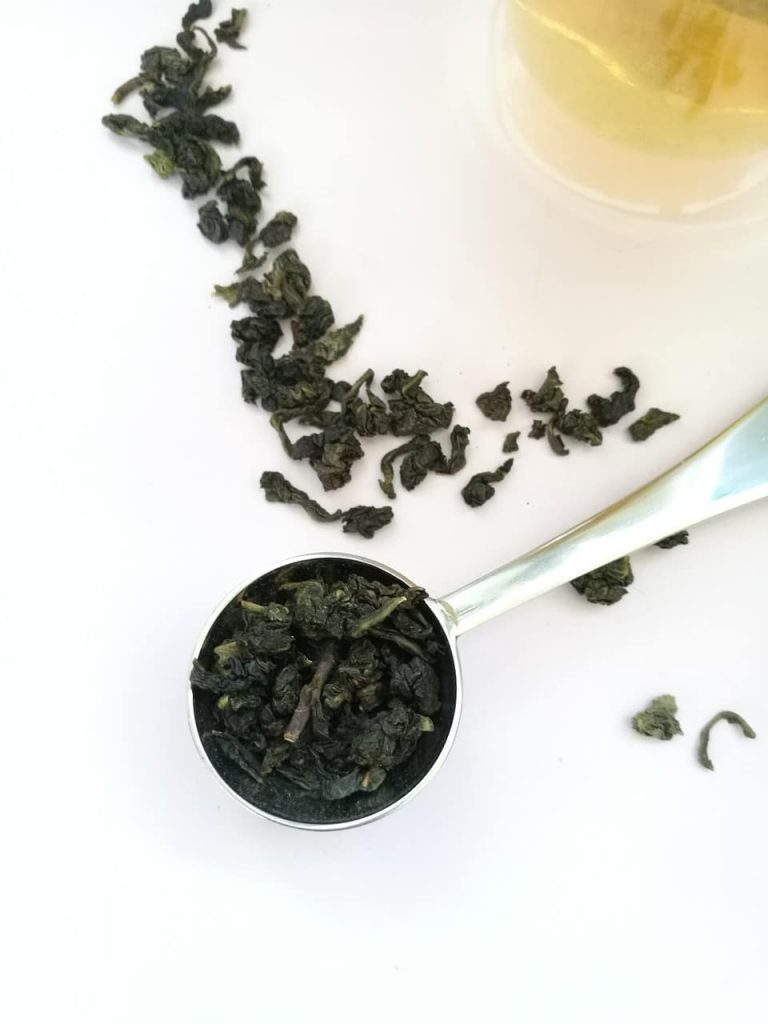Table of Contents
What Is Oolong Tea?
The traditional Chinese tea of Oolong Tea is not only a refreshing drink but is also loaded with lots of health benefits. It may not be as popular as green tea, but has as many benefits for its drinkers. Like green tea and black tea, oolong tea too comes from the leaves of the Camellia sinensis plant. However, the difference lies in the level of oxidation they go through. Green tea is the least oxidized and hence, the one which retains most of its green color along with its antioxidants. Black tea goes through the maximum amount of oxidation to get its darker, nearly black color. Oolong tea is somewhere in between green tea and black tea, it strikes a balance between the two as it is made from partially oxidized (half-fermented) leaves. Oolong tea is rich in antioxidants and that is also the reason for so many of its health benefits.

Health Benefits Of Oolong Tea
1. Helps Reduce The Risk Of Diabetes
Like green and black tea, oolong tea is packed with antioxidants that help to regulate the insulin levels in your body. According to a study, drinking around 720 ml of oolong tea per day makes you 16% less prone to type 2 diabetes. Another study showed that drinking around 1 liter of oolong tea per day for about 30 continuous days led to a reduction in the average blood sugar levels by 3.3%. Oolong tea is much rarer than green or black tea; therefore, not many studies and researches are available on this subject.
2. Oolong Tea For Weight Loss
One of the key benefits of oolong tea is that it helps to increase the metabolism rate of your body, thereby helping you reduce weight naturally. The presence of an antioxidant named polyphenol in oolong tea helps in this process. Studies have proved that when people consumed this tea regularly, the polyphenol in it will help them to increase their fat burning capacity by around 4.8%. You can also burn around 3.4% more calories in a day when you consume this tea, than when you don’t.
Also Read: Super Foods To Reduce Belly Fat | Best Diet To Shed Tummy Flab
3. Improves The Overall Functionality Of The Brain
Oolong tea, like other teas, contains caffeine and theanine – two important elements that help in keeping your brain fit, fresh and healthy. Caffeine helps your body to release norepinephrine and dopamine, which help in improving your mood, happiness and relaxation quotient by a large extent. Theanine, on the other hand, is an amino acid that helps in improving the alertness of the brain, thereby making you less prone to neurodegenerative ailments such as memory loss, dementia, Alzheimer’s, Parkinson’s and the like.
4. Helps In Overall Dental And Bone Health
One of the major health benefits of oolong tea is that it helps to keep your bones and teeth healthy. Oolong tea is a good source of fluoride, an important element in strengthening tooth enamel. Therefore, when you drink oolong tea regularly, you can reduce the risk of dental problems such as plaques.
Oolong tea is also known for its bone mineral density increasing properties. According to a study, people who drank oolong tea for 10 years had 2% higher bone mineral density than others who didn’t. Women going through their post- menopause stage should consider drinking oolong tea regularly, as this is the stage when their bones start becoming weak and brittle.
5. Makes You Less Prone To Cancers
Antioxidants play a vital role in preventing cell damage caused by cancerous cells in the human body. Oolong tea is loaded with polyphenols, which is very effective in stopping the division of cancer cells and mutations of cancer-causing cells in the body. A study conducted sometime back proved that regular tea drinkers were at least 15% lesser prone to oral cancers than people who didn’t drink tea.
A point to note here is that this study focused mainly on green and black teas. Oolong tea strikes a perfect blend between these two types; therefore you can expect some of these benefits from oolong tea as well. We should wait for more detailed research on this subject, which explains the direct link between oolong tea specifically and prevention of cancers.
6. Helps In The Overall Health Of Your Heart
The powerful antioxidants in oolong tea work well in improving the overall health of your heart. This time, there are several studies to prove this fact as they have been conducted on oolong tea drinkers only. It was proved that people who drank around 240 ml of oolong tea per day were 61% lesser prone to heart ailments than people who didn’t, in a study in Japan. In China, a study conducted proved that drinking around 120ml of oolong tea or green tea per day would make you 46% lesser prone to high blood pressure than people who didn’t drink these.
7. Helps In Getting Relief From Eczema
Eczema is an extremely frustrating problem as it may result in itching, redness, and rashes in various areas of your skin. The antioxidant, polyphenols, present in oolong tea, help you get a lot of relief from this condition. You should consume around 1 liter of oolong tea per day and continue with your usual eczema treatments. Within 1 or 2 weeks, you will be relieved to see a lot of improvement that you never experienced when you had been trying only the treatment. Close to 63% of oolong tea drinkers experienced phenomenal improvement in their skin within a couple of weeks.
8. Anti-Inflammatory Properties
Oolong tea contains polyphenols which makes the immune system more active and protects it from inflammation. Oolong tea can also protect you from arthritis, which is also an inflammatory condition. Oolong tea also has the flavonoid, EGCG (epigallocatechin gallate), which is responsible for fighting the free radicals that cause inflammation. It also keeps you safe from other related diseases such as clogged arteries and cancer.
9. Aids In Digestion
Some sources claim that oolong tea has a soothing effect which works on the digestive tract. It also relaxes the digestive tract. Oolong tea may also improve the excretion of toxins in the body.
Also Read: Chamomile Tea Health Benefits, Uses And How To Prepare At Home

Is The Caffeine In Oolong Tea A Point Of Worry?
Many people may hesitate to drink oolong tea as they know that it contains caffeine. Too much caffeine is definitely not good for your health. Caffeine can lead to high blood pressure, insomnia, and migraines when consumed beyond the recommended levels. However, you have nothing to worry about. This is because oolong tea has very little caffeine content. In about a 240-ml cup of oolong tea, you will notice less than 25% of caffeine than what you would notice in a 240-ml cup of coffee.
Side Effects Of Oolong Tea
It is a well known fact that excess consumption of anything, even a beneficial drink, could be harmful for the body. If you drink more than 5 cups of oolong tea in a day, it may cause side effects, due to the caffeine present in it. Some side effects could be mild and some could be serious. The following are the side effects caused due to excess consumption of oolong tea:
- Confusion
- Convulsions
- Ringing in the ears
- Dizziness
- Heartburn
- Tremor
- Irregular heartbeat
- Irritability
- Diarrhea
- Vomiting
- Problems in sleeping
- Nervousness
- Headache
Some Precautions That You Must Keep In Mind
- For women who are pregnant or are breast feeding, small amounts of oolong tea is not harmful. But if you drink more than 2 cups of oolong tea a day, it will affect your’s and the infant’s health in a number of ways.
- Since, there is high level of caffeine in oolong tea, caffeine can cause pre mature delivery and low birth weight in pregnant women while in women who breast feed, caffeine might lead to irritability and an increase in bowel movements in infants.
- If someone is suffering from anxiety disorder, then oolong tea may make it worse.
- Caffeine may worsen the bleeding disorder as it slows down blood clotting. This research has not been carried out in humans but still there is some concern.

How Much Oolong Tea You Should Drink In A Day?
If you are making, oolong tea at home, you must steep it as long as possible to increase the amount of flavonoids in the tea. You can drink 2-3 cups of oolong tea in a day. But consuming more than that may lead to the above-mentioned side effects.
How To Prepare Oolong Tea The Right Way
To enjoy the benefits of oolong tea to the maximum possible extent, you should know how to prepare oolong tea the right way. Here are tips that will help you in this process:
- The oolong tea should be pale golden, amber or green. This will indicate that the leaves have been fermented as much as needed for preparing oolong tea. When the color becomes very dark, it means you have over-fermented the leaves.
- You have to check for the quality of leaves if you want to get the full benefits of oolong tea. Ensure that you choose leaves that are stiff and shiny for the process.
- If you want to try oolong tea for weight loss, you can also add lemon juice in the mixture after you have strained the water when the leaves have steeped in. You can substitute lemon with cinnamon if you like.
- You can also make an effective drink for weight loss by boiling water and adding 1 teaspoon each of oolong tea and green tea in it. Let both the varieties of tea leaves steep for about 5 minutes before you strain and drink the beverage.
Quick Facts About Oolong Tea
- Oolong tea from China is also called Wu long tea, brown tea and rock tea.
- The tea Camellia Sinensis and Oolong Tea are made from the same plant.
- Oolong tea has more caffeine than green tea and less caffeine than black tea.
- Oolong tea has a darker color because it is partially oxidized and the oxidation level is between 8 to 85%.
- Oolong tea has high high level of oxidation and prevents loss of hair.
- Aroma and flavor of oolong tea depends on the place where it was cultivated.
- Oolong tea even has varieties, i.e. wu-yi tea, ti kuan yin, formosa oolong and pouchong.
Also Read:
Conclusion
Oolong tea is a refreshing and healthy drink that you can easily prepare. The health benefits of oolong tea are too many; so head to your nearest store and get a pack of oolong tea right away. It is available in the form of tea bags, powder and leaves. Yes, it is slightly overpriced than the regular tea varieties because of its rarity, but it is worth every penny that you pay for it.
References
https://www.healthline.com/nutrition/oolong-tea-benefits#section10
https://www.webmd.com/vitamins-and-supplements/oolong-tea-uses-and-risks#1


